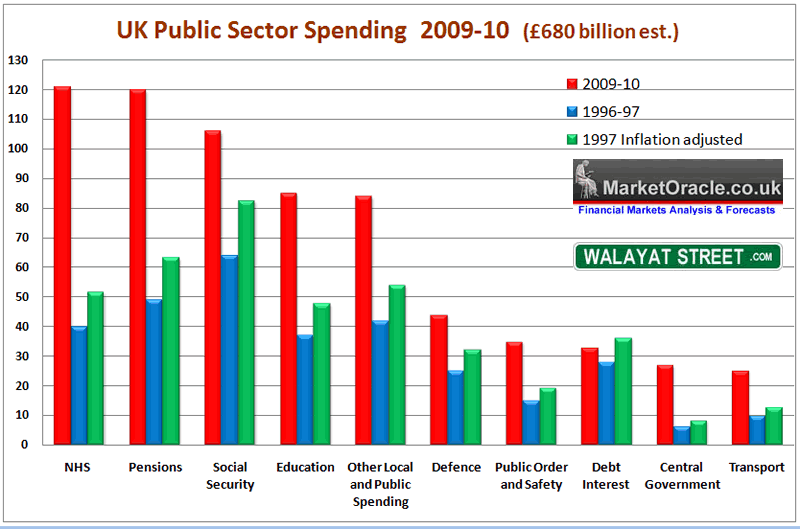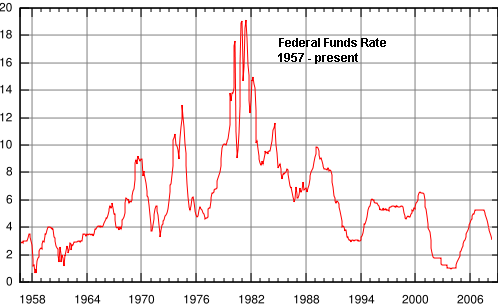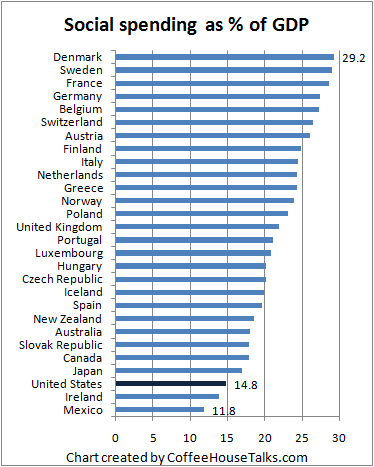- 04 Jan 2012 05:48
#13864379
Nope, you are quoting the conclusion and perception, also known as the scientist. Additionally, you are attempting to put scientific credibility on a subject that is impossible for using verifiable and repeatable experimentation that entails the very existence of science. If you quoted data and showed that as your argument, showing me how you came to those conclusions without needing to say that someone or something important agrees with that, then you would have a valid argument. Essentially, you are claiming that an authority with opinions and not facts shows that your argument is correct. Appeal. To. Authority.
Also, a creationlist could show his own "scientist", but you would only disagree with that person then, in the only way possible: Because you don't trust that authority.
Because how can you disprove someone who claims that dinosaurs are Satan's trick? It exists in complete spite of your argument, because it acts like it has your, opposing, arguments already incorporated into the creation of this argument.
Judging by your communist views, I'll translate this argument:
"The FT is a legitimate authority because the people who caused the world's problems, my capitalist enemies, by pushing for Neoliberalism, agree with it that Neoliberalism is a problem."
This sentence is batshit insane, so I'll try to formulate as much of a reasonable rewrite as possible:
"The FT is a legitimate authority because the people who run the economies point out that the declines are caused by theory." Yeah, scapegoating is a valid argument! (Not)
Or maybe you mean:
"The FT is a legitimate authority because people who support capitalism agree that too much capitalism is problematic. Yes, I know that these are the masses, which we really shouldn't expect to be knowledgeable about economics and history outside of talk shows and common knowledge, and I know that a lot of them are either idiots or too busy working to care, and I know that only about half of Americans and Western Europe gladly fall into this line, but I'm still saying that my argument is credible because I trust that all of the smart, knowledgeable, and beloved Western Europeans are the only demographics that agree with me, and that appeal to numbers and a generalized assumption of their qualities is enough proof for me to claim that my view of history is correct."
That's stupid.
1. If you're willing to admit that your source is flawed, it is not used as an argument. Ignoring the fact that you have used it as an argument to defend a view of history, I will portray how you would say it with this in mind:
"Hello, I think that Ron Paul shows that libertarianism is what's best for everyone. He has a hundred-million (joke number) followers, but, however, he is senile, wants to get high 23 hours a day and can only afford to do it 15 hours a day right now, and voted to increase the power of the Federal Reserve, so he might actually be wrong." Basically, if you're not claiming that your source is correct, you might as well not use it at all; but, if you do claim that it is correct, then it might as well 'must' be true.
2. It's a piece of evidence of what people think, and it is not evidence of what is. Use sources better.
You associate scientific observation, actual, perfectly verifiable mathematical and telescopic evidence, with a series of non-repeatable occurances with thosands or even millions of factors that are filtered by perceptions built through layer upon layer of even more random analysis? And you are playing the numbers game?! And you're only using a proportion of the population that agrees with you!? AND YOU ARE IGNORING MY REASONED POINTS TO FOCUS ON THIS ASSAULT ON LOGIC!?
Anyone can easily see the blindingly obvious that cutting spending reduces GDP. IT'S OBVIOUS! What isn't is that, a, whether the rate and scope of transition is a factor in itself, be, what caused further instability, and, c, do other areas benefit and create more good in a holistic sense? And before you DARE to say that the second one is agreed upon by the masses, argue AGAINST the Austrian, Monetarist, and even Georgist theories of the trade cycle to SHOW me why your argument is so much better.
Additionally, ANYONE can say that someone SAID something! That fact does not make an argument stronger.
So, shock therapy did not occur, and central banking was utterly wiped away? And currency was inflated, at the very most, and only to pander to the monetarists and not the Austrians, to match GDP growth?
HELL NO! In fact, the Federal Funds Target Rate became more prone to sharp changes after the Reagan years, and the average value was getting progressively lower as well, culminating in financial instability for obvious reasons.
I would say that the financial system is the most important, with the structure of changes made for it and other features of economies as equally important for maintaining a stable foundation. Simply because the Iron Curtain fell and some countries went from 150% tariffs to 5% and also coincidentally suffered debt, and it was selective across so many countries, does not in hell mean that either Austrian economics or Neoliberalism occurred.
Your numbers for privatization mean nothing: Chinese government lost half of its government control of industries, but, by looking at this fact alone, you would assume that Neoliberalism likely occurred, just like in your Japan example, despite this not being what I assume your view is. privatization is a small part of what constitutes Neoliberalism and Austrian. If I say that, after a socialist revolution, a dictator takes power, would you defend that as true socialism? Nope. You would say that it is missing crucial elements.
I notice that the only drop occurred with Uniformed Military Personnel. Do those represent government social influence? Also, this does not show members of government as a proportion of the population and it does not show the number of rules and regulations.
I assume you also argue against this for the reason to provide a perfectly acceptable alternative that is affordable to those poor people, one that doesn't use oil. Why can't that method be used later?
How does the existence of oil prevent others from growing food? Yes, it's cheaper, but that's only bad in the sense that you simply want to be fixated on the 'horrors' of every contingency that could possibly happen in the short-run. You would have to expect people to buy more expensive food for long-term interests against accidents, which would happen if they were smart enough to agree on something as so correct as the idea that Neoliberalism took over the world. (shrug)
Let's pretend that the 9 is a 6 or lower--- and how do these facts disprove anything I said? I already know these facts.
. If I was arguing with a creationist I would quote the science, if I was arguing with a global warming denier I would quote the science.
Nope, you are quoting the conclusion and perception, also known as the scientist. Additionally, you are attempting to put scientific credibility on a subject that is impossible for using verifiable and repeatable experimentation that entails the very existence of science. If you quoted data and showed that as your argument, showing me how you came to those conclusions without needing to say that someone or something important agrees with that, then you would have a valid argument. Essentially, you are claiming that an authority with opinions and not facts shows that your argument is correct. Appeal. To. Authority.
Also, a creationlist could show his own "scientist", but you would only disagree with that person then, in the only way possible: Because you don't trust that authority.
Because how can you disprove someone who claims that dinosaurs are Satan's trick? It exists in complete spite of your argument, because it acts like it has your, opposing, arguments already incorporated into the creation of this argument.
The FT is a legitimate authority on economics. That's not to say that it is always right, but it is an authoritative voice of the capitalist class. The capitalists take the FT seriously.
Judging by your communist views, I'll translate this argument:
"The FT is a legitimate authority because the people who caused the world's problems, my capitalist enemies, by pushing for Neoliberalism, agree with it that Neoliberalism is a problem."
This sentence is batshit insane, so I'll try to formulate as much of a reasonable rewrite as possible:
"The FT is a legitimate authority because the people who run the economies point out that the declines are caused by theory." Yeah, scapegoating is a valid argument! (Not)
Or maybe you mean:
"The FT is a legitimate authority because people who support capitalism agree that too much capitalism is problematic. Yes, I know that these are the masses, which we really shouldn't expect to be knowledgeable about economics and history outside of talk shows and common knowledge, and I know that a lot of them are either idiots or too busy working to care, and I know that only about half of Americans and Western Europe gladly fall into this line, but I'm still saying that my argument is credible because I trust that all of the smart, knowledgeable, and beloved Western Europeans are the only demographics that agree with me, and that appeal to numbers and a generalized assumption of their qualities is enough proof for me to claim that my view of history is correct."
That's stupid.
An appeal to authority is only a fallacious argument if I state that it MUST be true. I am giving it as a piece of evidence.
1. If you're willing to admit that your source is flawed, it is not used as an argument. Ignoring the fact that you have used it as an argument to defend a view of history, I will portray how you would say it with this in mind:
"Hello, I think that Ron Paul shows that libertarianism is what's best for everyone. He has a hundred-million (joke number) followers, but, however, he is senile, wants to get high 23 hours a day and can only afford to do it 15 hours a day right now, and voted to increase the power of the Federal Reserve, so he might actually be wrong." Basically, if you're not claiming that your source is correct, you might as well not use it at all; but, if you do claim that it is correct, then it might as well 'must' be true.
2. It's a piece of evidence of what people think, and it is not evidence of what is. Use sources better.
The fact that Marxists and the authoritative representatives of capitalism say the same thing should carry some weight, we both agree that the sun rises in the west.
You associate scientific observation, actual, perfectly verifiable mathematical and telescopic evidence, with a series of non-repeatable occurances with thosands or even millions of factors that are filtered by perceptions built through layer upon layer of even more random analysis? And you are playing the numbers game?! And you're only using a proportion of the population that agrees with you!? AND YOU ARE IGNORING MY REASONED POINTS TO FOCUS ON THIS ASSAULT ON LOGIC!?
Anyway, it is a fact that the Greek economy went downhill after the first round of austerity measures, I simply stated the fact that the FT managed to admit it while calling for more cuts!
Anyone can easily see the blindingly obvious that cutting spending reduces GDP. IT'S OBVIOUS! What isn't is that, a, whether the rate and scope of transition is a factor in itself, be, what caused further instability, and, c, do other areas benefit and create more good in a holistic sense? And before you DARE to say that the second one is agreed upon by the masses, argue AGAINST the Austrian, Monetarist, and even Georgist theories of the trade cycle to SHOW me why your argument is so much better.
Additionally, ANYONE can say that someone SAID something! That fact does not make an argument stronger.
The Austrian school had its way over the last 30 years of neoliberalism.
So, shock therapy did not occur, and central banking was utterly wiped away? And currency was inflated, at the very most, and only to pander to the monetarists and not the Austrians, to match GDP growth?
HELL NO! In fact, the Federal Funds Target Rate became more prone to sharp changes after the Reagan years, and the average value was getting progressively lower as well, culminating in financial instability for obvious reasons.
I would say that the financial system is the most important, with the structure of changes made for it and other features of economies as equally important for maintaining a stable foundation. Simply because the Iron Curtain fell and some countries went from 150% tariffs to 5% and also coincidentally suffered debt, and it was selective across so many countries, does not in hell mean that either Austrian economics or Neoliberalism occurred.
Your numbers for privatization mean nothing: Chinese government lost half of its government control of industries, but, by looking at this fact alone, you would assume that Neoliberalism likely occurred, just like in your Japan example, despite this not being what I assume your view is. privatization is a small part of what constitutes Neoliberalism and Austrian. If I say that, after a socialist revolution, a dictator takes power, would you defend that as true socialism? Nope. You would say that it is missing crucial elements.
It is true that public sector employment in America has not dropped vastly despite the wishes the the politicians. I think one reason was the growth in the military during the 1980s.I will get to employment, but you completely forgot about social spending as a proportion of the economy, which did increase.
In fact the number of federal workers in America has dropped from 6.4 million in 1967 to 4.44 million in 2010, sspite population growth.
I notice that the only drop occurred with Uniformed Military Personnel. Do those represent government social influence? Also, this does not show members of government as a proportion of the population and it does not show the number of rules and regulations.
Why do they use oil to grow food? Because it means in the short term they can get high yields with low labour power. It is not sustainable. And it is no use to poor farmers in the third world who need to be more self sufficient.So, you see, based on currently available resources, we have the most efficient produce, permitting others to find more useful endeavors.
I assume you also argue against this for the reason to provide a perfectly acceptable alternative that is affordable to those poor people, one that doesn't use oil. Why can't that method be used later?
How does the existence of oil prevent others from growing food? Yes, it's cheaper, but that's only bad in the sense that you simply want to be fixated on the 'horrors' of every contingency that could possibly happen in the short-run. You would have to expect people to buy more expensive food for long-term interests against accidents, which would happen if they were smart enough to agree on something as so correct as the idea that Neoliberalism took over the world. (shrug)
Ancient Egypt socialist? You are having a giraffe.Whatever you want to call it. It certainly wasn't capitalism, as you say, nor proto-capitalism.
As for capitalism, it started to surface in the 1200s and first became the dominant system in 3 bourgeois revolutions - England 1940, Holland about the same time, and France 100 years later. Germany was late on the scene and America didnt need one as such but it did have its own version, in two parts, the war of independence and then the civil war.
Let's pretend that the 9 is a 6 or lower--- and how do these facts disprove anything I said? I already know these facts.
Revenge is like a poison: if you don’t get enough, you’ll wish you were dead.
I's be's trollingz!

I's be's trollingz!




















 - By wat0n
- By wat0n